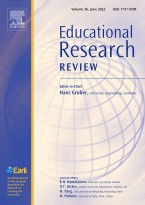
چکیده فارسی
تراتوم بدخیم تیروئید
چکیده هدف: تراتوم بدخیم تیروئید بسیار نادر است و کمتر از 30 مورد در بزرگسالان گزارش شده است. ارائه یک بیمار اخیر و مروری بر ادبیات، بینشی را در مورد تظاهرات بالینی معمول و ویژگیهای هیستوپاتولوژیک تراتوم بدخیم غده تیروئید در بزرگسالان و گزینههای مدیریتی موجود برای این فرآیند بیماری فراهم کرده است. روش کار: یک زن 33 ساله سالم با توده گردن راست به سرعت در حال رشد مراجعه کرد. آسپیراسیون با سوزن ظریف کارسینوم ضعیفی را نشان داد که منشأ تیروئید را دوست دارد. بیمار تحت عمل جراحی تیروئیدکتومی کامل، دیسکشن دو طرفه گردن کمپارتمان مرکزی و دیسکشن گردن جانبی راست قرار گرفت. تجزیه و تحلیل هیستوپاتولوژیک تشخیص تراتوم بدخیم غده تیروئید با متاستاز به گردن را به صورت دو طرفه تایید کرد. یافتهها: تراتومهای بدخیم تومورهای بسیار نادر غده تیروئید هستند. این توده ها معمولاً پس از تیروئیدکتومی با معیارهای هیستوپاتولوژیک تشخیص داده می شوند. بیوپسی با سوزن ریز معمولاً اجازه نمونه برداری کافی از تومور را نمی دهد. از نظر تاریخی، تراتوم بدخیم تیروئید پیش آگهی بدی دارد. با توجه به نادر بودن بیماری، هیچ پروتکل درمانی استانداردی به طور گسترده پذیرفته نشده است، اما برداشتن جراحی و به دنبال آن پرتودرمانی و/یا شیمی درمانی توصیه می شود. مدت بقای این بیماری نسبت به موارد گزارش شده قبلی افزایش یافته است، احتمالاً به دلیل گرایش به سمت درمان کمکی تهاجمی تر در سال های اخیر. نتیجهگیری: تراتوم بدخیم تیروئید یک فرآیند بیماری نادر و تهاجمی است که نیاز به درمان چندوجهی دارد. اختصارات: BEP = بلئومایسین، اتوپوزید و سیس پلاتین. MTT = تراتوم بدخیم تیروئید
چکیده انگلیسی
Malignant Thyroid Teratoma
ABSTRACT Objective: Malignant teratomas of the thyroid are very rare, with less than 30 cases reported in adults. Presentation of a recent patient and a review of the literature have provided insight into the usual clinical presentation and histopathologic characteristics of malignant teratomas of the thyroid gland in adults and the available management options for this disease process. Methods: A healthy 33-year-old woman presented with a rapidly growing right neck mass. Fine-needle aspiration demonstrated poorly differentiated carcinoma favoring thyroid origin. The patient underwent total thyroidectomy, bilateral central compartment neck dissection, and right lateral neck dissection. Histopathologic analysis confirmed the diagnosis of malignant teratoma of the thyroid gland with metastases to the neck bilaterally. Results: Malignant teratomas are exceedingly rare tumors of the thyroid gland. These masses are typically diagnosed after thyroidectomy by histopathologic criteria. Fine-needle biopsy generally does not allow for sufficient sampling of the tumor. Historically, malignant thyroid teratoma has a poor prognosis. No standard treatment protocol has been widely accepted given the rarity of the disease, but surgical excision is recommended, followed by radiation and/or chemotherapy. Length of survival from this disease has increased since earlier reported cases, possibly due to a trend towards more aggressive adjuvant treatment in recent years. Conclusion: Malignant thyroid teratoma is a rare and aggressive disease process that requires multimodal treatment. Abbreviations: BEP = bleomycin, etoposide, and cisplatin; MTT = malignant thyroid teratoma






